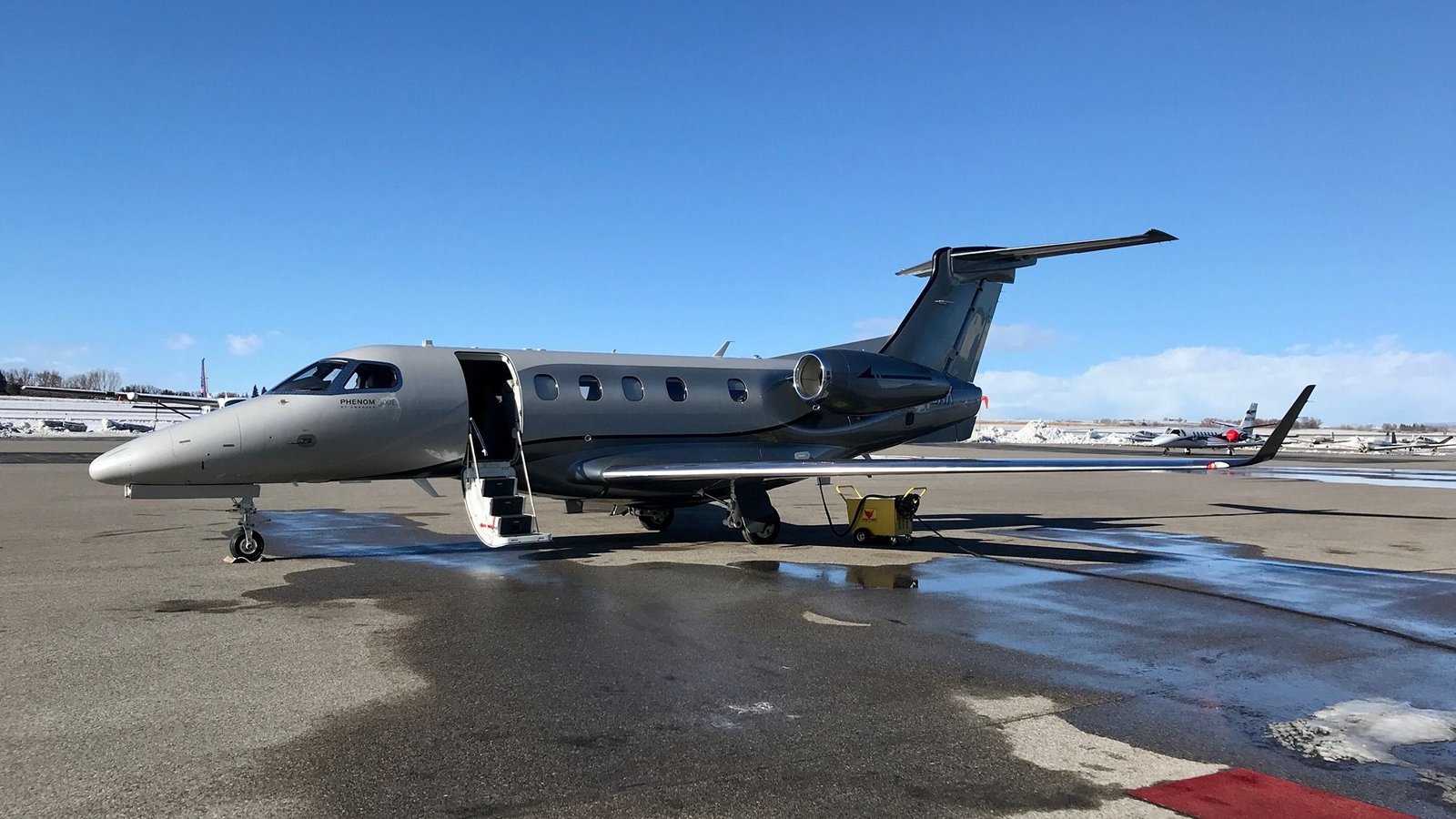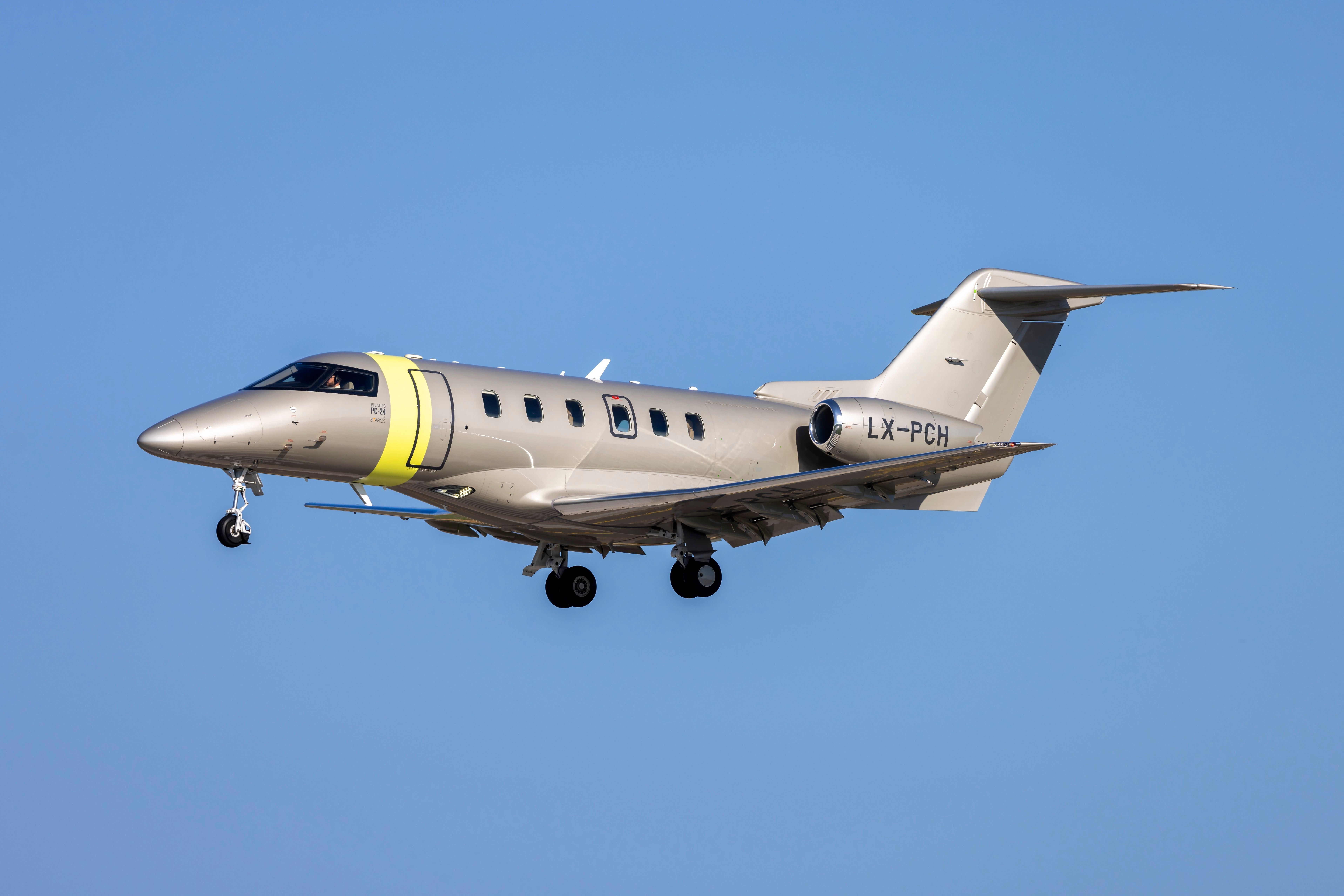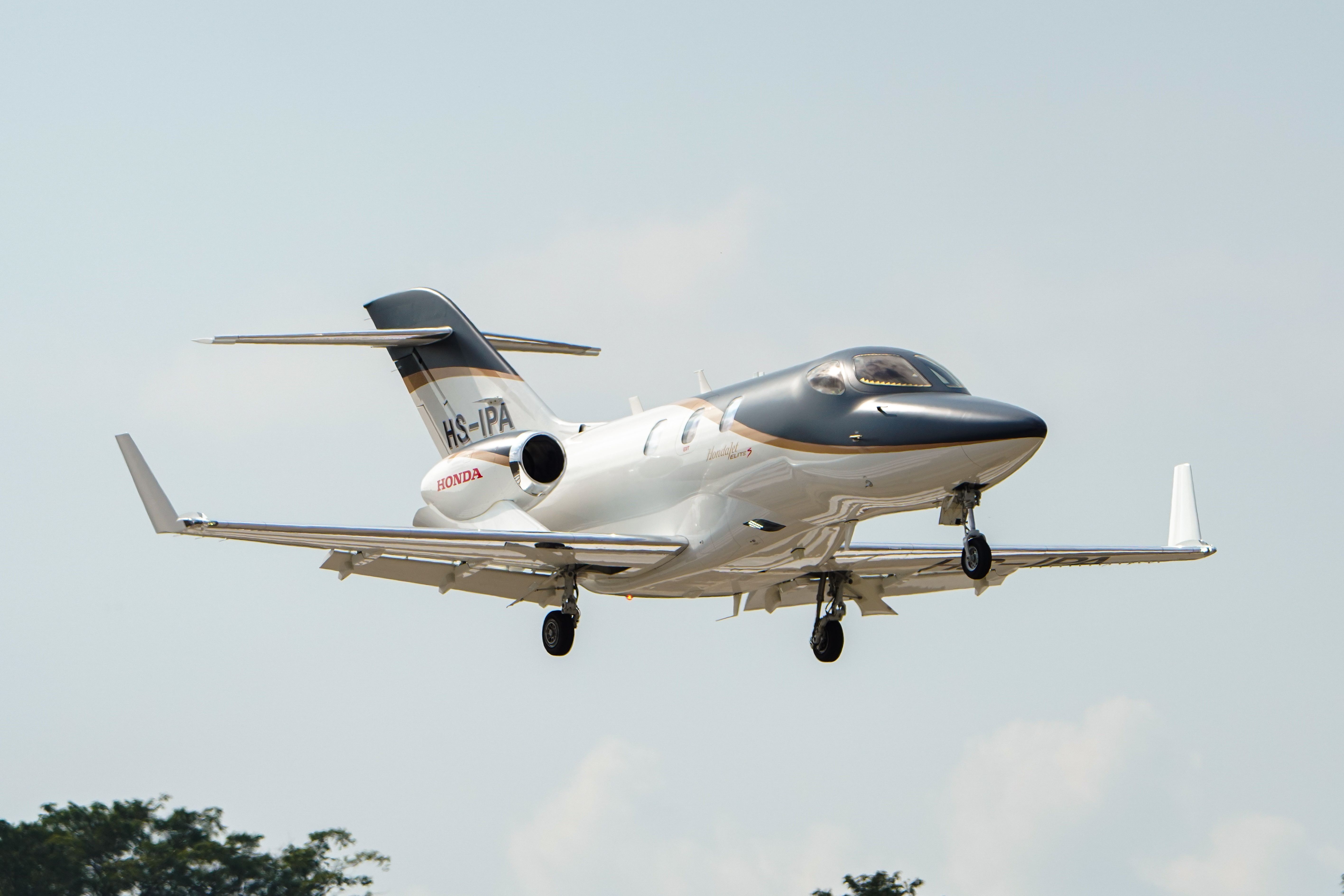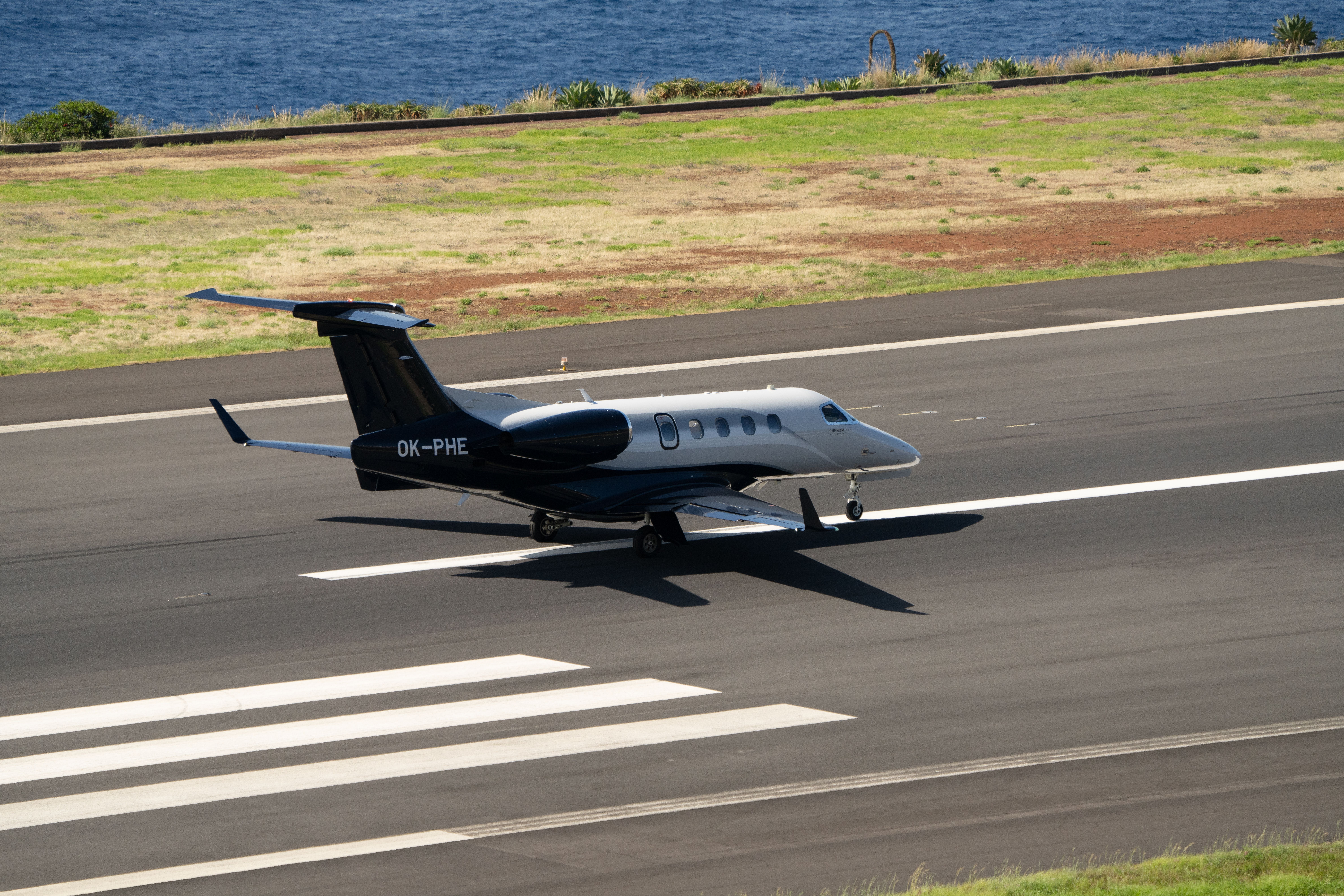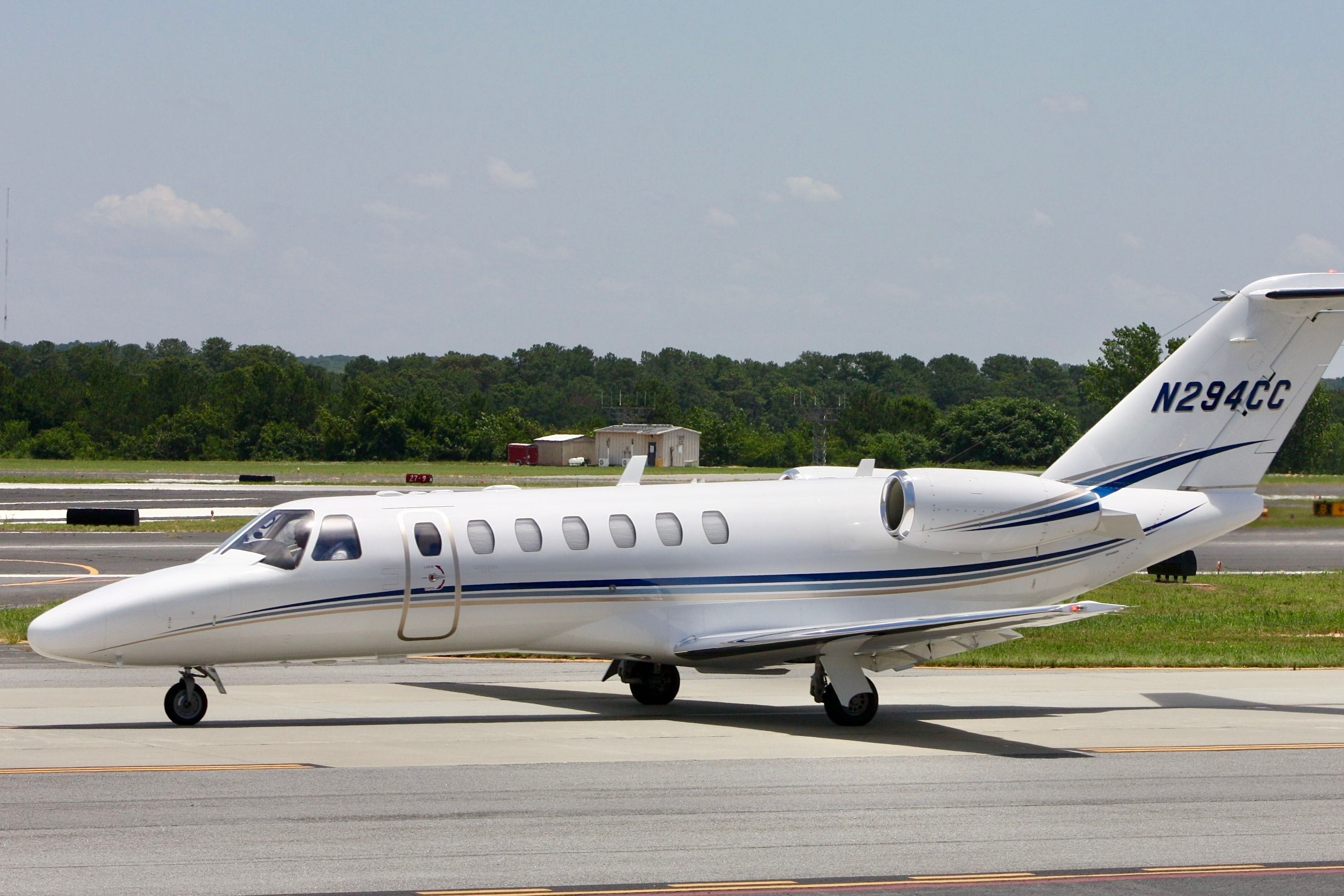Summary
- Utilizing light business jets offers flexibility for travelers wanting to pick their own routes and departure airports for more efficient travel.
- Light jets like the Pilatus PC-24, HondaJet Elite, and Embraer Phenom 300 have high speeds, ranges, yet cost much less than larger jets.
- The Cirrus Vision Jet, made from composite materials, offers personal high-performance travel with a single jet engine for a unique flying experience.
People across the world utilize business jets for ultimate flexibility when traveling. These operators do not need to wait for scheduled flights to take off. They also do not need to wait to go through security lines at smaller airports and can navigate to their private jet through fixed base operators (FBO). They can also pick the route and exact airport they want to depart from and arrive at.
Some operators utilize large jets to maximize range and passenger capacity. However, there are many travelers who want to fly themselves and a small group of passengers. A lot of these travelers still want to take advantage of longer ranges and quicker cruise speeds.
These passengers utilize light business jets, which are smaller jet aircraft that can still reach high cruise speeds and have high ranges yet can be flown by a single pilot and are ultimately much cheaper than larger jets. So, let’s take a closer look at some of the most affordable light jets in the market for 2024.
5 Pilatus PC-24
Cost: $8.5 – $9.5 million
|
Year introduced |
2018 |
|---|---|
|
Passenger capacity |
Ten passengers |
|
Cruise Speed |
440 knots (506 mph) |
|
Range |
2,000 nautical miles (2,302 miles) |
|
Service ceiling |
45,000 feet |
The Pilatus PC-24 was first derived from one of the most successful Pilatus aircraft, the PC-12, which is a single-engine turboprop aircraft. The PC-24 was designed to keep the ruggedness of the PC-12 and also the ability to land on short runways.
However, the PC-24 has a greater range and higher speed due to the utilization of two Williams FJ44 turbofan jet engines, which produce over 3,400 pounds of thrust each. The PC-24 can also land on runways just over 2,400 feet and take off on runways that are just over 3,000 feet.
Photo: InsectWorld | Shutterstock
The aircraft has seen great success with charter companies, and over 100 aircraft have been produced. The PC-24 also had a successful conversion into an air ambulance, with several countries across the world now using the air ambulance version of the PC-24.
4 HondaJet Elite
Cost: $6.95 million
|
Year introduced |
2018 |
|---|---|
|
Passenger capacity |
Seven passengers |
|
Cruise Speed |
422 knots (486 mph) |
|
Range |
1,437 nautical miles (1,653 miles) |
|
Service ceiling |
43,000 feet |
One of the lightest jets in the world is the HondaJet Elite. This aircraft was revealed in May 2018 as an extension of the successful original HondaJet, and the Elite was awarded its amended type certificate and began delivering in August 2018. The HondaJet Elite also included several upgrades, including an auxiliary fuel tank, increased elevator authority, a larger horizontal stabilizer, and a new engine inlet.
Photo: Bluebearwing | Shutterstock
These upgrades helped the aircraft take off on runways less than 3,500 feet long, and increased its range to 1,437 nautical miles (1,653 miles). The unique over-the-wing engine mount requires no support structure in the fuselage, which means the cabin has increased baggage space and more room for passengers.
3 Embraer Phenom 300
Cost: $6 – $8 million
|
Year introduced |
2009 |
|---|---|
|
Passenger capacity |
Ten passengers |
|
Cruise Speed |
452 knots (521 mph) |
|
Range |
2,010 nautical miles (2,313 miles) |
|
Service ceiling |
45,000 feet |
The Phenom 300 is one of the most-flown light jets and was also the world’s best-selling light jet in 2023. Originally, Embraer developed the aircraft from the Phenom 100, stretched the fuselage, and added several other upgrades. These upgrades include more powerful engines, added spoilers and added winglets. However, the aircraft retained the interior design of the Phenom 100.
Photo: Photosbypatrik | Shutterstock
Even though the aircraft is larger than the Phenom 100, it can still take off from smaller commuter airports with runways just over 3,200 feet long, and can land on runways of less than 2,215 feet. Over 60 Phenom 300s were delivered in 2023, and it has remained the best-selling light jet over the past 12 years, per the General Aviation Manufacturers Association (GAMA).
2 Cessna CitationJet
Cost: $5.25 – $8 million
|
Year introduced |
2013 (M2) |
|---|---|
|
Passenger capacity |
Seven to ten passengers |
|
Cruise Speed |
404 knots (465 mph) to 451 knots (519 mph) |
|
Range |
1,550 nautical miles (1,784 miles) to 2,165 nautical miles (2,491 miles) |
|
Service ceiling |
41,000 feet to 45,000 feet |
The Cessna CitationJet family of aircraft includes several light business jets. Originally, the CJ1 was developed in the late 1980s and was introduced in 1991. Currently, Cessna manufactures three jets in the CitationJet family: the Citation M2, CJ3+, and the CJ4, all slightly different in size and specification.
Photo: Austin Deppe | Shutterstock
Over 2,000 CitationJets across all variants have been produced since the family’s inception. The M2, the smallest of the current aircraft, began production in 2013 as Cessna’s entry-level jet. The largest of the CitationJets, the CJ4, has been produced since 2010 and includes a wing designed from a larger Cessna jet, the Citation Sovereign.
1 Cirrus Vision Jet
Cost: $2 million
|
Year introduced |
2016 |
|---|---|
|
Passenger capacity |
Six passengers |
|
Cruise Speed |
311 knots (351 mph) |
|
Range |
600 nautical miles (690 miles) |
|
Service ceiling |
31,000 feet |
The Cirrus Vision SF50 is an ultra-light jet. Originally, the aircraft was introduced in 2016, although it has been in development since 2006. The aircraft only utilizes a single jet engine located on the top of the fuselage.
Photo: GingChen | Shutterstock
The entirety of the aircraft is made from composite materials, and it includes a v-tail and retractable landing gear. The aircraft was originally designed as a high-performance, personal-use aircraft, as Cirrus intended the Vision Jet to be a step up from its SR20 or SR20 set of high-performance light aircraft.

